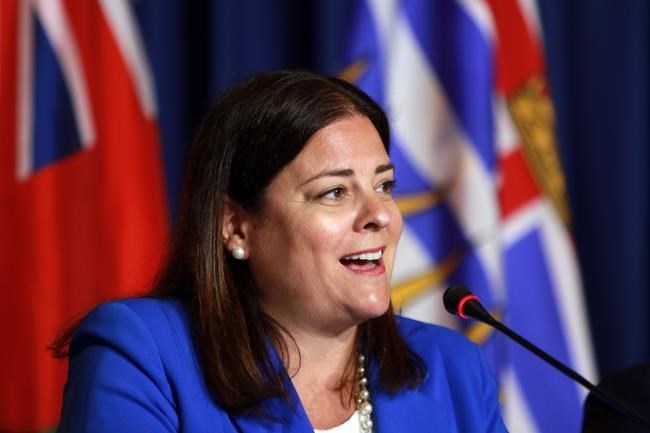WINNIPEG — The Manitoba government is starting a review of personal and business taxes with the aim of becoming more competitive with other provinces.
While Manitoba has been recording annual deficits almost every year since 2009 and is facing demands to spend more money on health care, the Progressive Conservative government said a more competitive tax regime would attract more businesses and boost provincial coffers.
"The way we will improve education and social services, health care, is by growing our economy," Premier Heather Stefanson said Wednesday.
"If we are growing our economy, there is more tax dollars that are coming to the province to be able to afford the social services that Manitobans need."
Critics said now is not the time for more tax cuts.
"Given the dire state of our health system and the drastic shortages that lead to worsened patient outcomes, ever-increasing wait times and other deleterious health effects for Manitobans, is this really the right time?" Manitoba Nurses Union president Darlene Jackson said in a written statement.
"Has there ever been a more appropriate time instead to invest in rebuilding our on-the-verge-of-collapse health-care system?"
Business leaders welcomed the tax review.
Groups such as the Manitoba Chambers of Commerce have long complained about the Health and Post Secondary Education Tax, commonly called the payroll tax. It charges businesses a percentage of their total payroll above $2 million a year. Most other provinces do not have a similar tax.
"It remains a disincentive to growth," chamber vice-president Elisabeth Saftiuk said.
High personal income tax rates also keep some people from moving to the province, she said.
The government is to set up an advisory group, consisting mainly of business leaders and financial firms, that is to report back before the spring budget.
The Tories have already reduced some taxes since taking office in 2016, including the provincial sales tax and an education tax on property. They have also raised the thresholds at which companies start to pay the payroll tax and when individuals start paying personal income tax.
The province also announced Wednesday a subsidy for businesses dealing with a recent increase in the minimum wage. The government raised the minimum to $13.50 an hour from $11.95 on Oct. 1 — a much sharper increase than it had originally signalled under a formula tied to inflation.
Businesses with up to 20 workers can apply for a subsidy of up to 50 cents an hour for each worker earning minimum wage. It is a temporary program that will expire on March 31.
"We've designed a program that we think will be user-friendly, quick and effective and businesses will be able to apply online," Economic Development Minister Cliff Cullen said.
This report by The Canadian Press was first published Oct. 19, 2022
Steve Lambert, The Canadian Press


